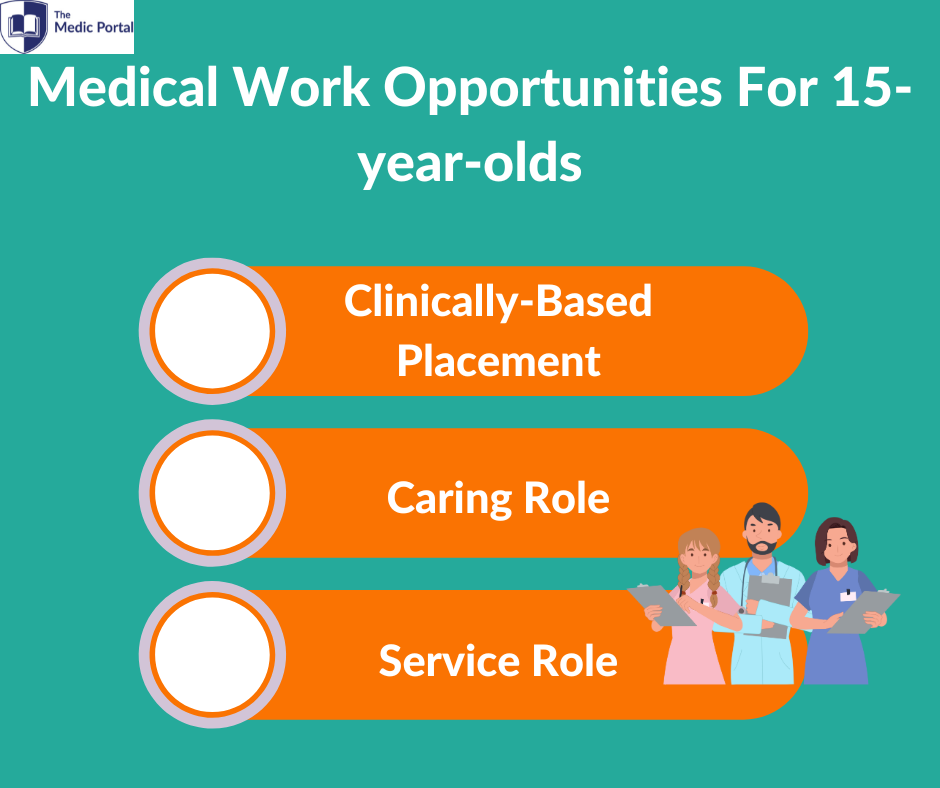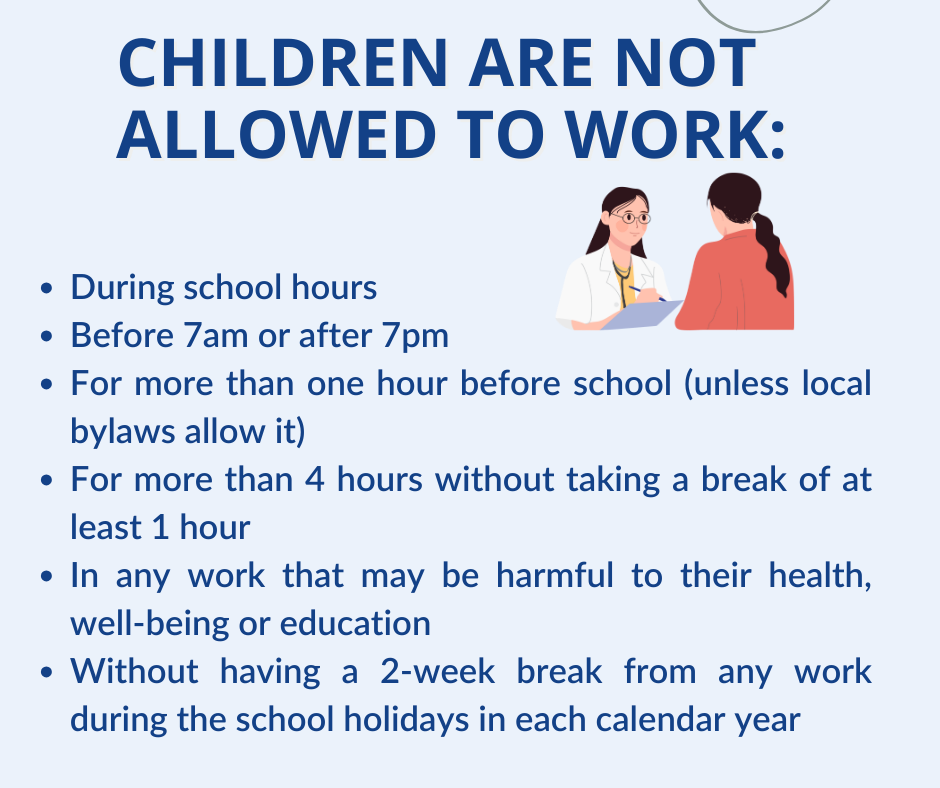What Is Work Experience?
Work experience is a placement in a professional working environment, offering a first-hand glimpse into what it is like to work in particular roles in that environment. Some placements offer more hands-on experience, while others provide work shadowing opportunities, allowing you to gain insights into the career in question.
Why Do I Need Medical Work Experience At 15?
Exploring medical work experience at 15 can be incredibly beneficial to confirm your interest in medicine. Early exposure to the clinical environment provides insights into healthcare professions, aiding future medical applications and developing essential skills, such as teamwork and empathy, through interacting with healthcare professionals and (if you’re lucky) patients!
At 15, you may be thinking about getting experience for your medical application already, but the majority of students will be carrying out work experience to ‘test out’ the medical profession.
In these cases, hands-on experience can be an extremely valuable tool to confirm whether a career in medicine is for you and also be a stepping stone for both personal and professional growth.
More generally, any form of work experience, whether that be in the medical sector or volunteering, is invaluable for several reasons:
- It offers you an insight into the professional world, enhancing your understanding of workplace dynamics
- It can help you to develop crucial skills extending beyond the classroom, including time management, effective communication and leadership skills
- It allows you to explore your interests, helping in the identification of future career paths
- It can boost your confidence and independence, offering a sense of responsibility and accomplishment
- It is something to add to your personal statement!
All UK Medical Schools now require evidence of applicants having experience in either a caring or service role. This can be voluntary or paid, in a healthcare or related field. In addition, evidence of direct observation of healthcare can strengthen your application.
Details on work experience requirements for each medical school can be found here. We would suggest starting to look early as this is a good way to get ahead in the application process!
Medical Work Experience Options For 15-year-olds
Medical work experience opportunities are widespread, though clinical opportunities for 15-year-olds tend to be limited to administrative or clerical roles. Nevertheless, in any of these roles, you can gain valuable insights into various medical careers and perhaps begin developing crucial skills, such as effective communication, in preparation for one day becoming a doctor!

How To Get A Clinically-Based Placement
Placements in the healthcare setting are essential for your medical application to evidence your knowledge of the medical career. In some cases, these can be relatively difficult to access so persistence is key! Top tips for getting a clinical placement include:
- Getting in touch with your local GP practices
- Asking any contacts you may have who work in a healthcare environment if they would be able to provide you with a work experience placement.
- If you are still at school it may be useful to speak to a career advisor or teacher who could help you to secure and arrange a placement
If you are really struggling to find a doctor shadowing opportunity, consider exploring roles with other healthcare professionals, such as physiotherapists or pharmacists. These positions are equally as important and will offer similar insights into the healthcare environment.
Go here to read our 5 top tips for applying for medical work experience.
How To Get Experience In A Caring Or Service Role
Equally as important for your medical application is experience in helping others through either a service or caring role. This can be paid or voluntary, although it may be slightly easier to find a placement in a voluntary role! Some of the organisations that can help you to get a placement in a caring or service role are listed below:
- St John’s Ambulance offers Cadet Unit volunteering roles, operating across England. In these roles, you will learn valuable life skills, and begin to expand your medical knowledge through first-aid training!
- Work with Kissing it Better, a healthcare charity and training provider aimed at ending isolation in old age through intergenerational projects.
What Clinical Activities Can I Take Part In As A 15-year-old?
Here are some examples of clinical tasks and activities you may be involved in during your work experience:
- Analysis of existing health records/hospital data, such as surveys
- Updating communication material. This could include website pages, noticeboards or leaflets
- Reverse mentoring: You may be asked to teach a more senior colleague how to use aspects of social media for healthcare purposes for example!
- Analysing records of telephone conversations to determine which issues are generating complaints
- Helping to make beds up in wards and general tidying of patients’ bed area
- Distributing ward leaflets or information to new patients about certain more common conditions
- Helping patients to get around the ward
Importantly, if any of the tasks you are asked to do involve direct patient contact consent must be obtained from the patient beforehand. Don’t worry too much about this, a healthcare professional will be with you at all times to make sure all goes to plan!
Can 15-year-olds Receive Payment For Their Work?
Work experience in the NHS will not include payment for the students. Similarly, if you decide to pursue a volunteering role, you will not be paid for your time. There are some paid caring/service roles available, however, it is advisable to wait until you are at least 16 to apply for these paid roles as it is less likely you will be given the job at 15 years old.
Additional Rules and Guidelines
Employers need to be careful to avoid overworking underage students. The government has set out a number of rules and restrictions on employment to prevent that from happening.

During school holidays 15 to 16-year-olds can only work a maximum of 35 hours a week. This includes:
- a maximum of 8 hours on weekdays and Saturdays
- a maximum of 2 hours on Sunday
During term, 15 to 16-year-olds can only work a maximum of 12 hours a week. This includes:
- a maximum of 2 hours on school days and Sundays
- a maximum of 8 hours on Saturdays
FAQs: Medical Experience For 15-year-olds
How Can I Access Work Experience In The NHS?
Getting work experience in the NHS, particularly following the COVID-19 pandemic, can sometimes be more challenging than expected. Here are some of our top tips for accessing NHS-based work experience:
- Get in contact early
- This gives you an opportunity to plan the placement logistics together with the healthcare professional and for all necessary paperwork to be completed in advance.
- Be flexible on timings
- If you can offer numerous dates you would be available for a work experience placement in a clinical setting then do so.
- Be flexible on the type of work experience
- There are many different work experience placements available in the NHS, from clinical to pharmaceutical. Be flexible on what kind of work experience you get. Each of them will provide similarly valuable insights into the workings of the NHS and help you to develop your skills in advance of your medical application.
Do I Need A DBS Check For My Work Experience Placements?
Jobs in the caring sector are likely to require you to have a DBS check prior to starting work. In most cases, members of the team will guide you through the process of obtaining a DBS check. It is not necessary for students on work experience placements in the NHS to complete a DBS check as you will be supervised at all times during the placement.
Is There Anything Else I Need To Carry Out Work Experience?
Anyone on a work experience placement under the age of 18 must have a parent or guardian sign of consent. The organisation you are carrying out the work experience placement with will provide you with the necessary paperwork.
